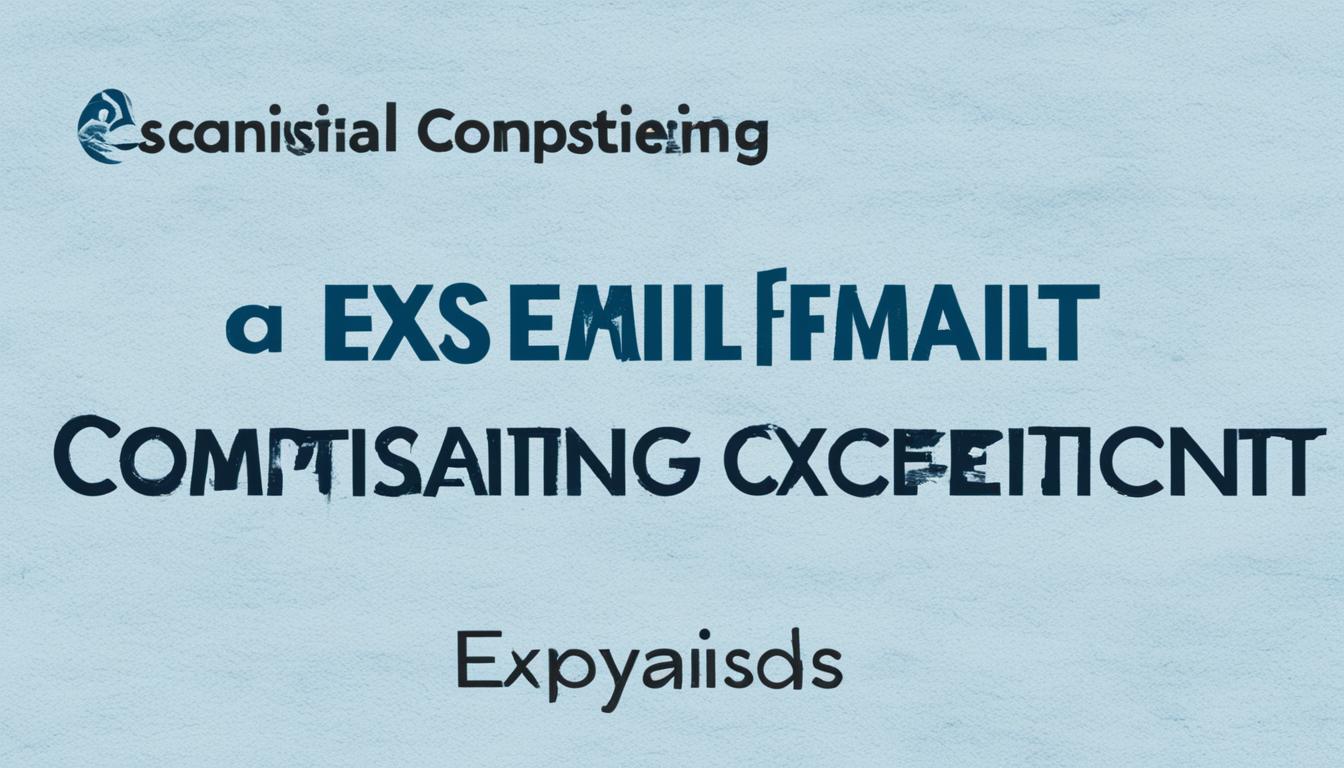In the DSE exam.dse email formatIt is important to demonstrate your professional communication skills. Learn how toWriting the right dse mailThis will not only help you to score well, but will also show your organisational skills. This will not only help you score well, but will also show your organisational skills.
Key Highlights
- Mastering dse email writing skills and improving communication skills
- Make good use of email formats to ensure messages are delivered clearly
- Correct use of upload and download formats to enhance professional standards
- Demonstrate a high level of linguistic competence by paying attention to contextual awareness
- Enhance your DSE writing skills with GETUTOR English private tuition!
Letter Writing Format
DSE letter writing format depends on the recipient's situation. Choosing the right format will show your professionalism in writing.
I don't know the name of the recipient.
If you don't know the recipient's name, start the letter with "Dear Sir/Madam". End with "Yours faithfully" to show respect.
I know the name of the recipient.
When you know the recipient's name, start the letter with "Dear [surname]". Closing with "Yours sincerely" makes the letter more personal and formal.
Suggested Use
Understanding the email guidelines and writing techniques for the DSE will enhance your correspondence. Familiarising yourself with these norms will help you in the DSE and in practical situations, and GETUTOR offers private English tutors.getutor.com.hk/eng-tutor.
Sentences for Different Writing Purposes
In the DSE exam, different purposes require different sentences to communicate. We will provide examples of five purposes of writing: asking for support, fundraising, thanking, inviting and applying. This will help candidates to communicate their views more accurately.
Please support
Use this sample sentence when asking for support:
- Example sentence:"I am writing to request your support for our upcoming project."
- Remember, dse email writing guidelines emphasise courtesy and a formal tone.
fundraising
If you're writing in the hope of getting donations, take this advice:
- Example sentence:"I am writing to ask for your generous support in our fundraising campaign."
- In your emails, highlight your needs and beneficiaries. This is guided by dse email rhetorical tips.
Thank you.
This is a good example for expressing gratitude:
- Example sentence:"I am writing to express my gratitude for your continuous support."
- These sentences help you to express your gratitude in a sincere way.
Invitation
Use this simple sentence when inviting someone to an event:
- Example sentence:"I am writing to invite you to our annual meeting."
- It's straightforward and meets dse email writing guidelines.
Application
Try this sentence when you want to apply for a job:
- Example sentence:"I am writing to apply for the position advertised on your website."
- This type of sentence, as taught by dse, clearly expresses your purpose.
Whatever the purpose of writing, following these examples and dse guidelines is very helpful for candidates. In addition, if you want to improve your English writing skills, GETUTOR offers English tutoring services, please feel free to enquire.
Email format
In DSE email writing, proper formatting can help candidates perform better. Firstly, the subject should be clear. This allows the recipient to understand the content at a glance. You can start with a phrase like "I am writing to you" to convey your greetings and intentions.

The DSE exam requires your email to be like a letter, with a beginning and an end. Start with "Dear Sir/Madam" or "Dear XX" and end with "Regards" or "Yours faithfully or "Yours faithfully". You can also choose to end with "Best regards".
Choose a tone and words that suit the situation and purpose. When asking for help, say "I am writing to request for your support". When thanking someone, use "I am writing to express my gratitude". This makes your purpose clear and improves readability.
Below are a few examples of DSE email formats:
| Terminology | typical example | Application Scenarios |
|---|---|---|
| Subject line | Request for Support | Please support |
| Opening Phrase | I am writing to request your support | Please support |
| Concluding Remarks | Yours faithfully | Officially closed. |
| Flexible Endings | Best regards | More informal closure |
To take the DSE exam, you need to understand the text format and adapt it to the context, GETUTOR provides professional English tutors to help you improve your English skills. For details, please go togetutor.com.hk/eng-tutor.
Report format
In the DSE examination, a specific format is required for writing a report. This demonstrates the candidate's organisational and language skills. It is important to identify the headings and sub-headings of the report so that the reader can understand the content and key points at a glance.
title
The title should be written accurately and concisely. It should summarise the theme and purpose of the report. For example, if the report is about the change of performance dates of the Hong Kong Youth Arts Festival, the title could be "Change of Performance Dates of the Hong Kong Youth Arts Festival 2000".
Subheading
The use of subheadings can help the reader quickly understand the different parts of the report. Most reports include an introduction, a description of the problem, recommendations, and conclusions.
- Introduction:Outline the background and purpose of the report.
- Question Description:Describe in detail the issues addressed by the report.
- Recommendation:To make recommendations to resolve the problem.
- in conclusion:To summarise the contents of the report, the emphasis is on the recommendations.
Precautions
Candidates should pay attention to several points when writing the Report:
- Don't use one or two persons, use the passive voice.
- Write in a professional and objective tone. Personal feelings should be avoided.
- Organise your report using subheadings and numbering to ensure clarity.
- It is more convincing to use graphs to present data or comparisons.
By following these tips, candidates' outstanding reports will take shape. To learn more about the DSE style guide, refer to the examples or ask one of GETUTOR's English private tutors for help. In addition, double-checking each section to ensure accuracy will improve your exam results.
Proposal format
First of all, the objective of the proposal should be clear. For example, "We aim to enhance the educational resources..." is a good opening.
Then describe your proposal in detail. You'll want to provide a specific solution, describing how it will be implemented and what the results might be. Use Professional dse mail writing The Government will also make your proposal more convincing and practicable.
The last section is the conclusion. The conclusion should summarise the main points of the proposal and call for support for your ideas.
| Formatting section | Key Points |
|---|---|
| contexts | Describe the reasons for and impacts of the proposal, using dse Email Writing Tips Enhance the accuracy of the description. |
| Purpose | Clearly state the objective of the proposal. |
| suggestion | Provide a solution that outlines a plan for implementation and a projection of results. |
| in conclusion | To summarise the main points of the proposal and appeal for support. |
Eventually, it will be put to good use. dse Email Writing Tips and Professional dse mail writingThis will help you to make your proposal more convincing. This will help you to cope with all kinds of proposal writing challenges in the examination hall.
Want to know more about English private tutors? See GETUTOR's services.
Speech format
In the DSE exam, it is important to understand the Speech format. Unlike other forms of writing, speech requires you to speak clearly. It is also important to consider the tone of voice and the interaction with the audience. Below is an introduction to the Speech format to help you excel in your DSE emails.
Introduction
The introductory speech is crucial as it sets the tone for the entire speech. Start your speech by following the Speech format. You can use a simple greeting such as "Good morning, everyone". Then introduce yourself briefly and explain the main idea of your speech. Finally, don't forget to thank the audience for coming.

text
The body is the focus of the speech and should be clear and powerful. You should illustrate each point with examples. It's also important to be versatile in your tone and expression. This will make you more engaging and closer to the dse exam requirements.
Conclusion
The conclusion is used to summarise the main ideas of the speech. To conclude, choose a fixed sentence such as "In conclusion". This will leave a lasting impression. Finally, leave something for the audience to think about and end the speech.
By mastering these Speech formatting skills, candidates will be able to face the DSE exam with confidence.GETUTOR offers private tuition in English to help you improve your test taking skills.
Article Format
DSE Article FormatThere are often compelling headings and well-organised paragraphs. When researching, students should explore the topic in depth. They should begin and end their essays in an engaging way.
There are several main types of essays for the DSE English exam:
- Descriptive articles
- Explanatory Notes
- Discussions
- Narrative Essay
Good article headings and subheadings allow readers to quickly understand the content. Below is an example of an article structure:
| part | content |
|---|---|
| introductory | Briefly introduce the topic of the article to capture the user's interest. |
| main text (as opposed footnotes) | Explore the topic in depth, detailing supporting arguments in sections. |
| in conclusion | Summarise the main points of the essay, echo the theme, and provide a vision for the future or a request for action. |
GETUTOR offers a private English tutor service. This helps students to familiarise themselves with the dse mail style guide and article format. This in turn improves their DSE English exam results.
Practice questions
It is important to prepare for the DSE exam, especially for the writing questions. Doing a variety of writing exercises, such as writing letters, emails and reports, will help improve your writing skills.
About half of the DSE exams will involve writing letters. This includes business letters and letters to editors. You should be aware that there are different formats for letters. To write a letter to someone you don't know, you can start with "Dear Sir/Madam" and end with "Yours faithfully". For people you know, you usually start with "Dear Mr. Chan" and end with "Yours sincerely".
Under pressure, ending with "Best regards" is fine, regardless of whether or not the other person is known to you.
Be clear about the purpose before writing the letter. You can use "I am writing to"or"We would like to"Begin by expressing your purpose. The tone and structure of letters with different purposes, such as a request for support, a thank you, or an invitation, will vary.
Practising writing samples will help students to apply these skills when they take the exam.
- Please support: I am writing to request for your support...
- fundraising: I am writing to ask for your support in...
- Thank you.: I am writing to express my gratitude for...
- Invitation: I am writing to invite you to...
- Application: I am writing to apply for...
- Email Demo: Write an email requesting support. Pay attention to proper formatting and terminology.
- Letter Demonstration:: For example, it is important to practise writing different formats for letters to the editor or business letters. Make sure that you use the correct salutation and endings.
- Report templates:: The report should be written with a clear title. The report should include an introduction, a description of the problem, recommendations and conclusions.
These exercises will allow you to familiarise yourself with the various DSE letter and email formats and learn to use rhetorical skills. You will do well in the exam. In addition.GETUTORPrivate English tutors are available. Please visitgetutor.com.hk/eng-tutorlearn more.
in conclusion
In order to prepare for the English writing section, it is important to have the skills to write in different formats. We have introduced various writing formats, including letters, emails, reports and articles. For formal letters, you should use appropriate beginnings, such as "Dear Sir/Madam" or "Dear Mr. Chan". Finally, remember to choose an appropriate ending, such as "Yours faithfully".
Emails should be as formal as letters, but need to emphasise subject lines and precise presentation. Reports and proposals require a higher degree of organisation, with headings and subheadings, for example, detailing the background and providing solutions. The use of passive voice adds a sense of formality to the text. Speeches should draw attention from the introduction, have a strong thesis statement, and conclude with a conclusion.
In conclusion, knowing and mastering a wide range of writing skills helps to demonstrate a candidate's excellent organisational skills. With these skills, exam preparation and performance will be even better through constant practice and counselling such as GETUTOR. For a more in-depth look, check out the dse email examples and the dse email style guide.
FAQ
What are the points to note in the DSE email format?
In DSE questions, writing emails requires attention to communicate clearly and professionally. You can make use of different formats such as superscripts and inferscripts to demonstrate your language skills.
If I do not know the name of the recipient of the letter, how should I upload and download the money?
If you don't know the recipient's name, you should start your message with "Dear Sir/Madam". The next ending can be "Yours faithfully".
If I know the name of the recipient of the letter, how should I upload and download the money?
If you know the recipient's name, you can start the letter with "Dear [last name]". Then, write "Yours sincerely" at the end.
What are some common writing sentences used in DSE emails?
Depending on the purpose of writing, you may choose appropriate sentence forms, for example:
- Request for support: "I am writing to request for your support".
- Chip: "I am writing to ask your support".
- Expression of gratitude: "I am writing to express my gratitude".
- Invitation: "I am writing to invite you".
- Application: "I am writing to apply for".
How should I write the subject of my DSE emails?
In the subject of your email, make the content clear to the recipient. Use words and tone that suit your purpose.
What are the requirements for the DSE Report format?
Reports need to have clear headings and subheadings. They help the reader to understand the structure and main content of the report. The report should include an introduction, description of the problem, recommendations and conclusions.
What is the difference between the Proposal format and the Report format?
Compared to a report, the format of a proposal places more emphasis on the purpose and proposed solution. The proposal should state your purpose clearly and provide an effective solution to convince the reader to support it.
What are the key parts of writing a DSE Speech?
Each DSE Speech usually consists of three parts: an introduction, a body and a conclusion. The introduction describes the theme and purpose, the body describes the point, and the conclusion summarises the main points.
What format should I pay attention to when writing a DSE Article?
Writing an Article requires a compelling title and structured paragraphs. You should engage your readers through in-depth discussion, and the beginning and end of the article are important.
How can I use practice questions to consolidate my DSE writing skills?
Provide students with a variety of practice topics, such as writing letters, emails or reports, to familiarise them with DSE writing styles and techniques. This will help them to write for different situations and purposes. Timely practice will strengthen their writing skills.
Source link
- https://hk.amazingtalker.com/blog/zh-hk/hktutor/27878/
- https://spencerlam.hk/blog/2022/03/11/dse-格式/
- https://issaclo.hk/chinese/comprehensive-format-cheat-sheet/
- https://spencerlam.hk/blog/2021/06/14/dse-english-paper-3/
- https://afterschool.com.hk/blog/238-dse-english-paper-2-writing/
- https://afterschool.com.hk/blog/242-dse-english-paper-3-listening/
- https://hk.amazingtalker.com/blog/zh-hk/hk-eng/5178/


